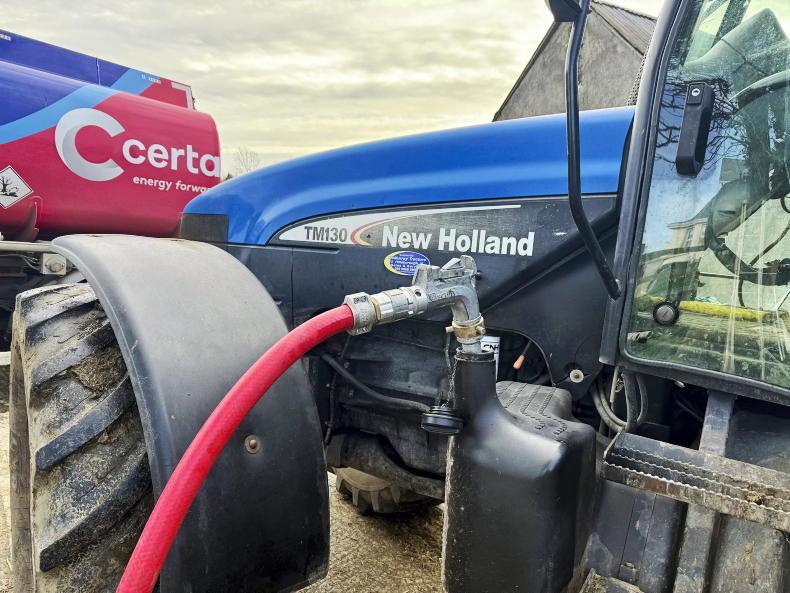The Oireachtas committee on climate action adopted its final report after seven months of work last week, including a list of priority recommendations on agriculture. All parliamentary political parties were represented on the committee, and all voted in favour of its report except Sinn Féin and Solidarity-People Before Profit.
Listen to "Thomas Cooney and Ian Marshall on Climate committee report" on Spreaker.
The committee’s priority recommendations on agriculture and land use are:
A “plan for the agriculture sector to align with meeting Ireland’s Paris agreement commitments”: this should be led by the Department of Agriculture and “specify actions and timelines to implement and promote” the list of 28 actions identified by Teagasc last year. The plan should direct funding to climate mitigation, biodiversity and carbon sequestration measures under the next CAP – and provide “robust indicators of the impacts of measures”.The measures mentioned include rewetting and maintenance of bogs, riparian planting, agroforestry, continuous cover forestry and hedgerow conservation. The plan is due by the end of this year and should take into account the report on agriculture expected from the global Intergovernmental Panel on Climate Change (IPCC) in August. This aligns with existing plans by the Department of Agriculture to publish an “environmental sustainability roadmap for the agri-food sector” this year.
A multi-sectoral forum on “agricultural diversification and climate change”: the Department of the Taoiseach should bring together farm organisations, processors, NGOs, Government departments, Teagasc, the EPA and the Climate Action Council (a new, stronger version of the State’s existing Climate Change Advisory Council). This forum is expected to discuss how Irish farming could become less dependent on carbon-intensive systems such as dairy and beef.Knowledge transfer through Teagasc: the agency should expand the role of its advisers to low-carbon farming “without imposing additional advisory costs on low-income farmers”. Independent advisers, discussion groups, farm bodies and colleges should be included in this effort to “drive behavioural change”.A “national strategy for sustainable anaerobic digestion” (AD): the Government should have a strategy ready this year to develop “co-operatives to process slurry via AD to provide heat and energy and fertiliser to the agricultural sector and biomethane to consumers”. The strategy should look at the environmental impact and economics of the sector.A nationwide hedgerow survey: “the Government should commission a study to quantify the climate mitigation and adaptation functions of this resource by 2021”. This can then be used to tailor schemes to the management and planting of hedgerows.Two forestry reviews: “the Climate Action Council should undertake a comprehensive reviews of the climate mitigation potential of our forests” this year. This should be used to design the National Forestry Programme under the next CAP. The committee also wants the Government to commission “an indepedent review and sustainability audit of Coillte’s forest business and other activities”.
A pathway for peatlands: the idea is to identify how to rehabilitate and restore bogs to “achieve net sequestration from peatlands nationally by 2050”. The next budget should include funding for a programme of rewetting and restoration.The report’s discussion section warns that expansion plans under Food Wise 2025 will “inevitably drive higher levels of ruminant-based production and place GHG emissions on a continued upward trajectory” unless growth comes with diversification, especially towards horticulture. “The trend towards more plant-based diets represents a commercial opportunity,” committee members wrote.
While a carbon tax on farming would be “complex,” the committee will keep it under review for the future. An alternative could be “emissions trading,” similar to the milk quotas of the past. The existing carbon tax on fossil fuels should quadruple over the next 10 years (adding 16c/l to the price of diesel, for example). However, the money should be ring-fenced and increases come in only after an “evidence-based plan” is in place to protect those who “may not be in a position to immediately transition from fossil fuels”.
Energy measures for agriculture
A feed-in tariff for
micro-generation
The committee asked the Department of Communications and the energy regulator to review electricity market rules by the end of this year to enable micro-generated electricity, such as power from solar panels on buildings, to be sold to the grid. “This should include the provision for a feed-in tariff for microgeneration to be set at least at the wholesale price.” The committee also asked the Department to ring-fence a pot of money for electricity generated by community-led projects in the first auction of the new Renewable Electricity Support Scheme, “if possible” as early as in the first auction due this year.
Relaxed planning rules for solar
Photovoltaic panels on sheds, homes and small businesses should be exempt from planning permission, with farms mentioned explicitly. The committee said the Department of Housing should change this “urgently”.
Questions on large-scale biomass
The Government should re-evaluate its co-firing subsidy for peat and biomass in power stations, and Bord na Móna and the ESB should do the same with their plans for biomass “due to the lack of an indigenous supply”.
Read more
Controversial climate report delayed
What farmers can do to tackle climate change
Preparations 'under way' for new strategy after Food Wise 2025 – Creed
The Oireachtas committee on climate action adopted its final report after seven months of work last week, including a list of priority recommendations on agriculture. All parliamentary political parties were represented on the committee, and all voted in favour of its report except Sinn Féin and Solidarity-People Before Profit.
Listen to "Thomas Cooney and Ian Marshall on Climate committee report" on Spreaker.
The committee’s priority recommendations on agriculture and land use are:
A “plan for the agriculture sector to align with meeting Ireland’s Paris agreement commitments”: this should be led by the Department of Agriculture and “specify actions and timelines to implement and promote” the list of 28 actions identified by Teagasc last year. The plan should direct funding to climate mitigation, biodiversity and carbon sequestration measures under the next CAP – and provide “robust indicators of the impacts of measures”.The measures mentioned include rewetting and maintenance of bogs, riparian planting, agroforestry, continuous cover forestry and hedgerow conservation. The plan is due by the end of this year and should take into account the report on agriculture expected from the global Intergovernmental Panel on Climate Change (IPCC) in August. This aligns with existing plans by the Department of Agriculture to publish an “environmental sustainability roadmap for the agri-food sector” this year.
A multi-sectoral forum on “agricultural diversification and climate change”: the Department of the Taoiseach should bring together farm organisations, processors, NGOs, Government departments, Teagasc, the EPA and the Climate Action Council (a new, stronger version of the State’s existing Climate Change Advisory Council). This forum is expected to discuss how Irish farming could become less dependent on carbon-intensive systems such as dairy and beef.Knowledge transfer through Teagasc: the agency should expand the role of its advisers to low-carbon farming “without imposing additional advisory costs on low-income farmers”. Independent advisers, discussion groups, farm bodies and colleges should be included in this effort to “drive behavioural change”.A “national strategy for sustainable anaerobic digestion” (AD): the Government should have a strategy ready this year to develop “co-operatives to process slurry via AD to provide heat and energy and fertiliser to the agricultural sector and biomethane to consumers”. The strategy should look at the environmental impact and economics of the sector.A nationwide hedgerow survey: “the Government should commission a study to quantify the climate mitigation and adaptation functions of this resource by 2021”. This can then be used to tailor schemes to the management and planting of hedgerows.Two forestry reviews: “the Climate Action Council should undertake a comprehensive reviews of the climate mitigation potential of our forests” this year. This should be used to design the National Forestry Programme under the next CAP. The committee also wants the Government to commission “an indepedent review and sustainability audit of Coillte’s forest business and other activities”.
A pathway for peatlands: the idea is to identify how to rehabilitate and restore bogs to “achieve net sequestration from peatlands nationally by 2050”. The next budget should include funding for a programme of rewetting and restoration.The report’s discussion section warns that expansion plans under Food Wise 2025 will “inevitably drive higher levels of ruminant-based production and place GHG emissions on a continued upward trajectory” unless growth comes with diversification, especially towards horticulture. “The trend towards more plant-based diets represents a commercial opportunity,” committee members wrote.
While a carbon tax on farming would be “complex,” the committee will keep it under review for the future. An alternative could be “emissions trading,” similar to the milk quotas of the past. The existing carbon tax on fossil fuels should quadruple over the next 10 years (adding 16c/l to the price of diesel, for example). However, the money should be ring-fenced and increases come in only after an “evidence-based plan” is in place to protect those who “may not be in a position to immediately transition from fossil fuels”.
Energy measures for agriculture
A feed-in tariff for
micro-generation
The committee asked the Department of Communications and the energy regulator to review electricity market rules by the end of this year to enable micro-generated electricity, such as power from solar panels on buildings, to be sold to the grid. “This should include the provision for a feed-in tariff for microgeneration to be set at least at the wholesale price.” The committee also asked the Department to ring-fence a pot of money for electricity generated by community-led projects in the first auction of the new Renewable Electricity Support Scheme, “if possible” as early as in the first auction due this year.
Relaxed planning rules for solar
Photovoltaic panels on sheds, homes and small businesses should be exempt from planning permission, with farms mentioned explicitly. The committee said the Department of Housing should change this “urgently”.
Questions on large-scale biomass
The Government should re-evaluate its co-firing subsidy for peat and biomass in power stations, and Bord na Móna and the ESB should do the same with their plans for biomass “due to the lack of an indigenous supply”.
Read more
Controversial climate report delayed
What farmers can do to tackle climate change
Preparations 'under way' for new strategy after Food Wise 2025 – Creed









SHARING OPTIONS